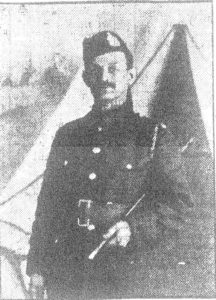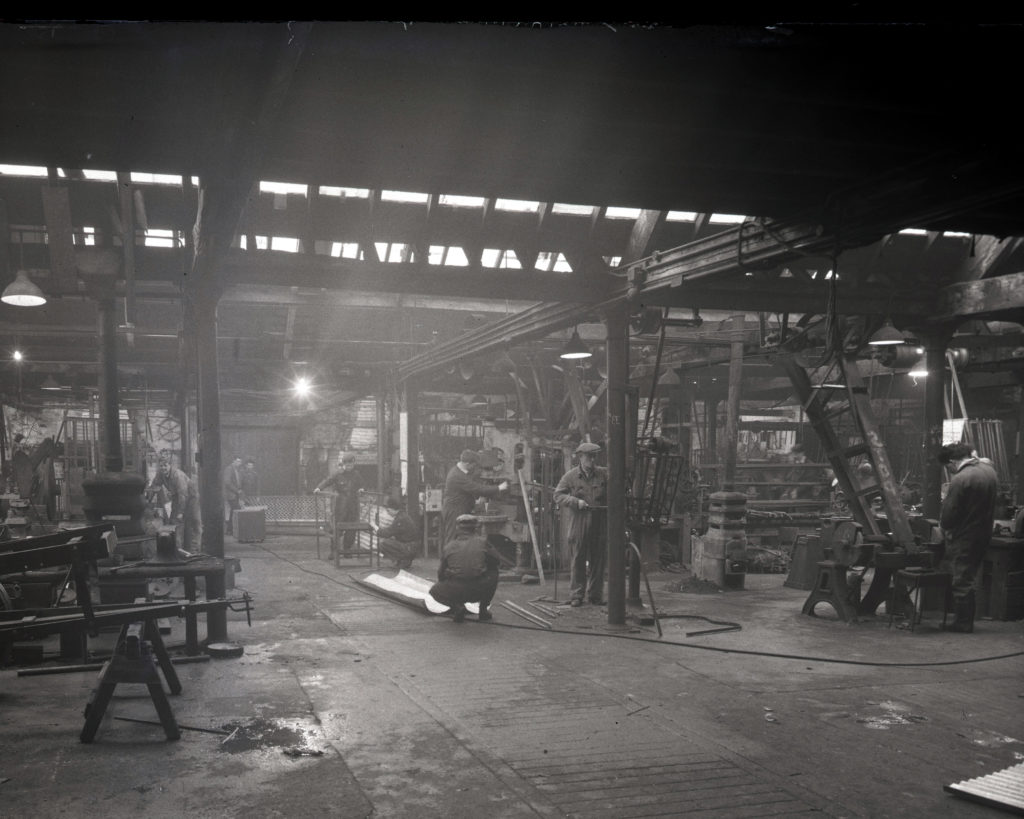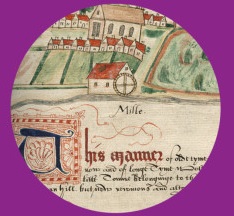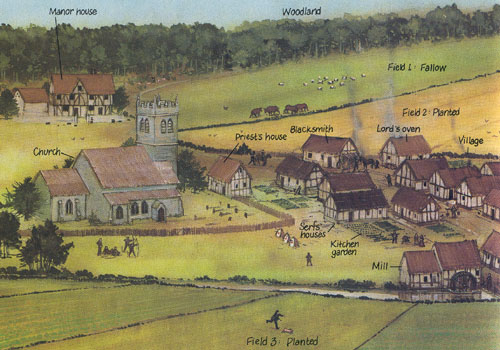BERWICK ADVERTISER, 4 MAY 1917
LETTERS TO THE EDITOR
WANTED MEN AND WOMEN FOR AMBULANCE WORK
Port Hospital,
Berwick-on-Tweed,
May 1st, 1917
Sir. – May I appeal through the medium of your paper for men and women to form a V.A.D., in this most northern part of Northumberland. Last Friday evening the members of St. Andrew’s Ambulance Corps., received a visit from the Chief Commissioner for Northumberland (Mr P. B. Palmer). In a very strong appeal Mr Palmer asked for the immediate formation of both a men and a women’s detachment. The need is great. The nearest men’s detachment is at Alnwick. The nearest women’s at Belford. Mr Palmer wants at least 200 men for ambulance work, (and as many women as he can get) between Wansbeck and Tweed. We want all the men and women in Berwick, Tweedmouth and Spittal and Scremerston who have First Aid or nursing certificates, to volunteer. Others who have not certificates may join on probation.
Berwick is a long way behind in ambulance work, let us have this stigma removed, and get to the front as quickly as possible.
Mr Hetherington, High Street, or Mr J. Richardson, 25 Main Street, Spittal, will receive names of men willing to join. Women may send their names to Miss Noble, 47a Main Road, Spittal or the undersigned.
ANTHONEY
Commandant, St. Andrews Ambulance Corps.
Berwick-on-Tweed Section.
MORE COMFORTS WANTED FOR THE SOLDIERS.
Hopeville, Castle Terrace,
Berwick-on-Tweed,
May 1st, 1917.
Sir,- At the request of the General Committee of the Guild of Aid, I again venture to ask your valuable help, in permitting us to make an appeal through the medium of your paper, to all friends, who are willing and able to help us, in sending out much needed comforts to the men in France, who are so strenuously fighting our battles. We have an urgent request, to send as soon as possible, shirts, socks, towels, (small) and handkerchiefs (dark coloured). Owing to the large demands made upon us lately, we have a very small stock in hand, and would be grateful for any help, however small, towards meeting this request. Our hearts are all too full of the desire to send any crumb of comfort, that we possibly can, to our heroes overseas, to need any appeal, it is quite enough, we know, to state our needs for them, to have them met, we would be glad to have all articles by Tuesday, May 15th, sent either to any member of committee, or to the Town Hall, on Tuesdays, between 2.30 and 3.30. Thanking you for your courtesy.
Yours faithfully
ISABELLA H. PLENDERLIETH,
(President of the Guild)
RIDING OF THE BOUNDS
The time honoured custom of riding the Berwick Bounds was duly observed on Tuesday, 1st May, in the usual manner. Fine weather prevailed and the proceedings were much enjoyed. The company assembled at noon at the Parade and proceeded by the customary route.
In the mayor’s carriage there were present – His Worship the Mayor, Mr M. Ross, (the Sheriff) Councillor Thomas Wilson, and the acting Town Clerk ( MR James Gibson).
In a brake there were the following – Alderman G. A. Turnbull, and Councillors Wm. Anderson, T. Bolus, Alex. Darling, Wm. J. Dixon, J. Elder, F. Richardson, and the Chief Constable.
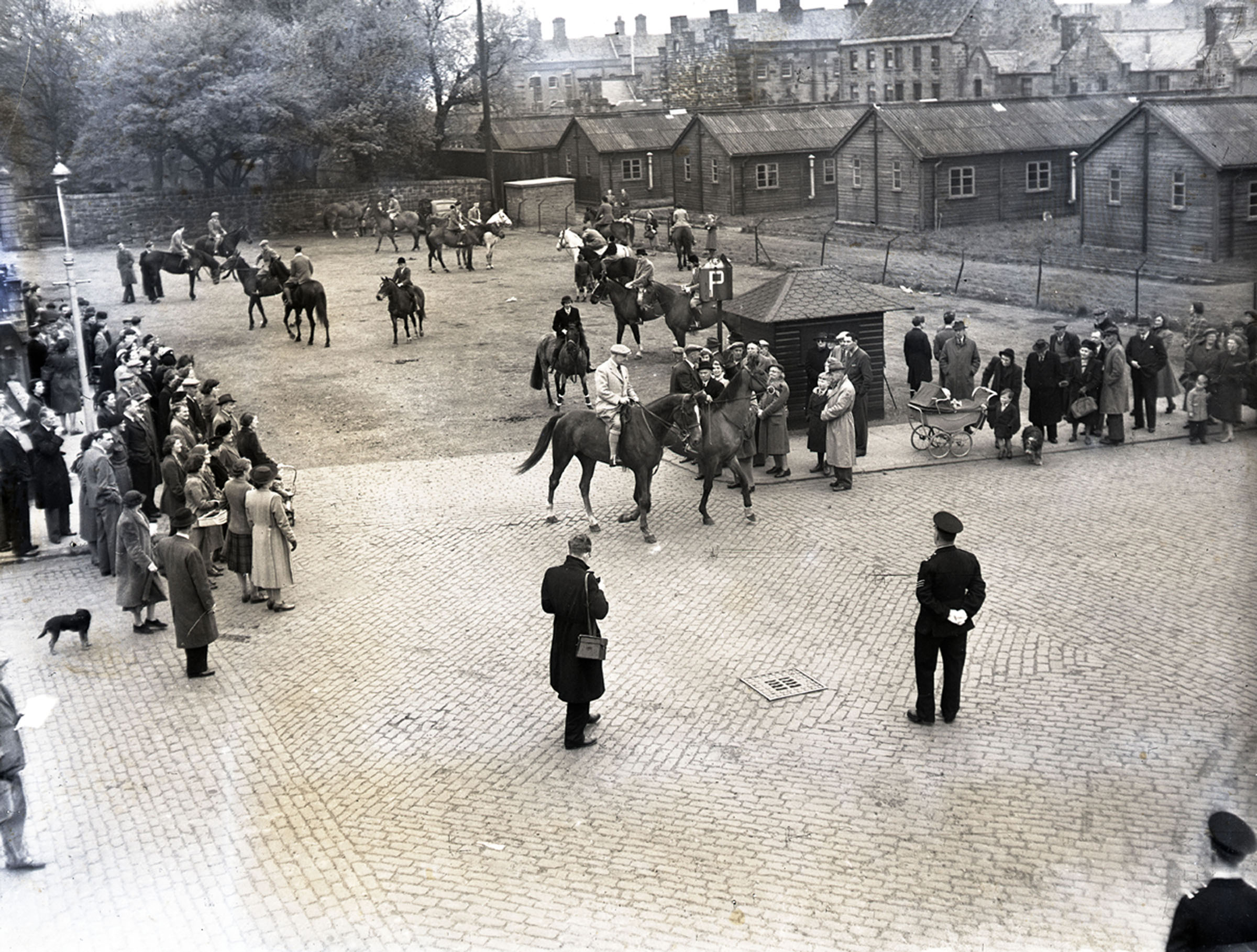
The horseman riders were represented by both youth and age; youth was represented by Master Moffat, Wes Edge, a born horseman, 14 years, and this will be the fifth annual occasion on which he has ridden the Berwick Bounds; and by one who at mature years rode the Bounds 47 years ago, Mr J. Cameron, V.S,. There was also one cyclist soldier from the Borderers, a boy.
At the inn at Canty’s there was a liberal supply of refreshments dispensed, consisting of tea, coffee, biscuits, cheese, and ale.
At the conclusion of the drive home the company drove to the Town Hall before dispersing, when the Mayor in a few words formally thanked the company for their attendance at the function.
DEAD HERO PRAISED BY OFFICERS AND MEN
George Murray, N.F., only son of Mr Andrew Murray, formerly groom to Dr Maclagan, Berwick, and now of Akeld, Wooler, has been killed by a snipper. He served his apprenticeship with Mr Mosgrove as a shoemaker and was afterwards employed by the North British Railway Company.
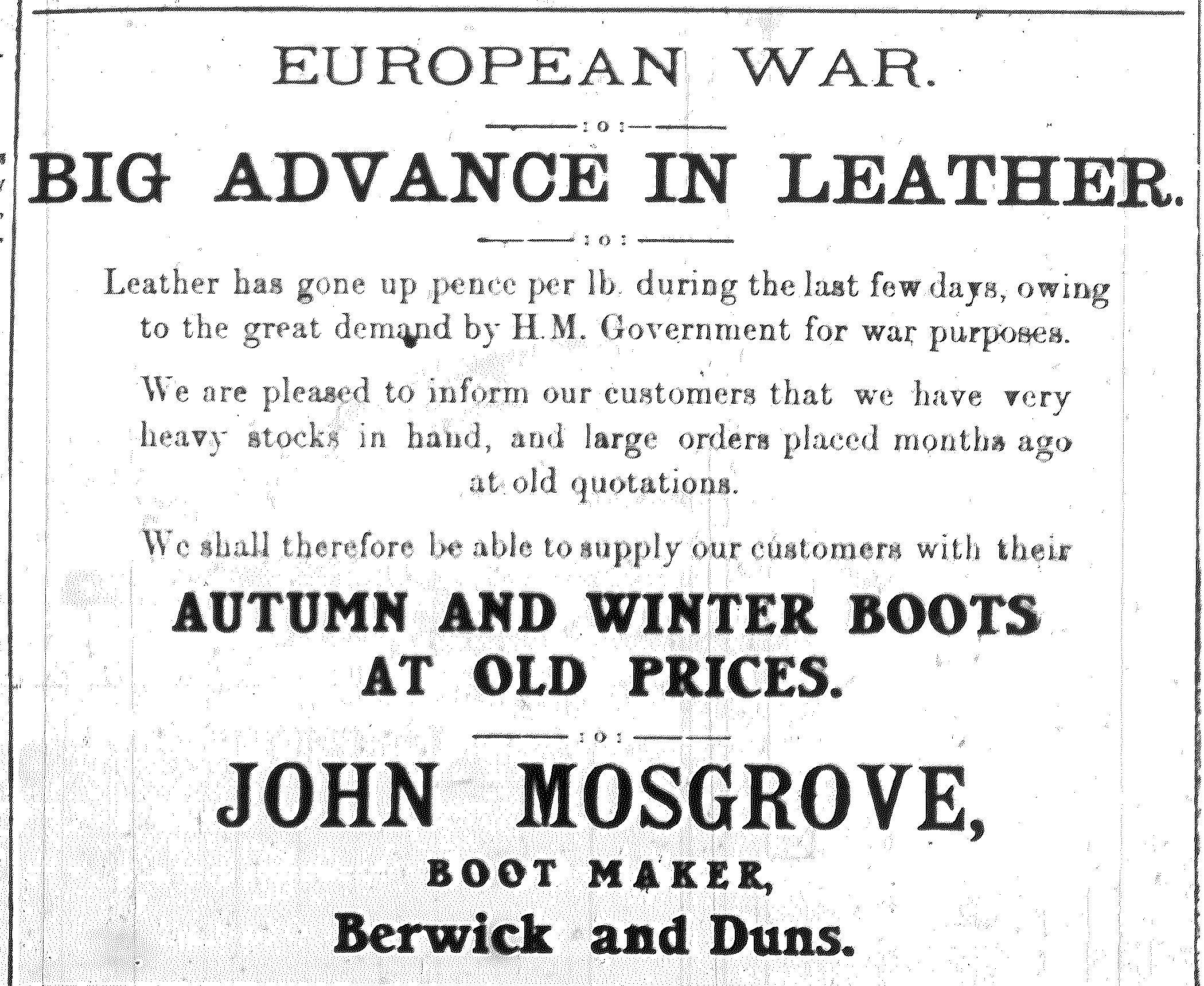
He was a territorial before the outbreak of war, was 23 years of age, and was in the machine gun section. Very high praise has been received of Private Murray’s soldierly bearing and courage in letters sent both by officers and men.
AN INTERESTING LETTER
This is an extract from a letter from Sergt., T. H. Grey, Machine Gun Corps., son of Mr Thos. Grey, Tweedmouth, which will be interesting:- “I had to tell you that Tom Davidson was all right, in case his people were inquiring for him, however, five minutes after, he got wounded, so I suppose by this time he is well on his way to Blightly. It was just a few minutes prior to an attack, and we were having a talk about old times before going over the top. I didn’t have the luck to see him again. We have some decent weather this last week, but the week before as you would see by the papers took some enduring. Many a time when we get wet through, we remark that had it been at home in civil life, we would have been following it up with a week in bed, whereas out here we can lie in a shell hole night and day and endure all sorts of storms, not to mention bombardments. I fancy it must be the excitement that keeps us fit, it must be something out of the ordinary at any rate. We have celebrated our second anniversary in grand style I don’t mean by a great feast or supper, but by taking part in one of the biggest of battles and claimed to have been one of the fiercest, nevertheless it has gained for us a few days rest.
By the way, we had our Red and White roses on St. George’s Day, you see although I am now in the M.G.C., I like to consider myself still in the N.F. Those who were less fortunate than us and got killed that day were buried with their roses still pinned to their uniform. I’m sorry to say one of the unlucky ones was a very intimate friend of mine, being Sergeant in the same section as myself, it was his second anniversary in France too, and he had never until that fateful day, been either wounded or in hospital from any cause; such is the Fate that awaits the soldier on the battlefield.
MIRACULOUS ESCAPE OF A NORHAM LAD
Mr T. Robertson, gardener, Birch Hill, Norham, has received a letter from his son, Trooper J. Robertson, of the Royal 10th Hussars, who has been in the thick of the recent fighting in which he relates some stirring events.
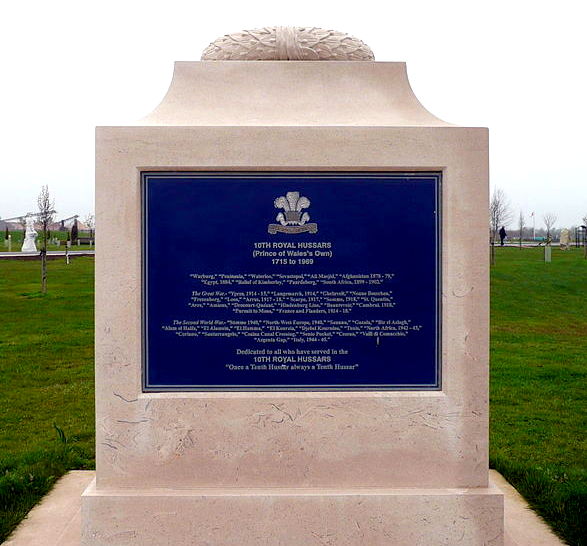
It appears that on one occasion some of the cavalry got held up in a village, and were ordered to dismount for action. In the fight Trooper Roberson was blown up into the air, landed in a garden, and wonderful to relate escaped without a scratch. It was a pretty rough time while it lasted and as he says, “We came through it, however, with the loss of a great number of horses most of which were blown up into the air; the number of men killed, I am glad to say was not many.” Trooper Robertson has been in France since August of last year. Previous to joining the colours he was a rabbit catcher, and is well known in the district. He lost a brother, who was in the K.O.S.B. at the battle of the Somme.


